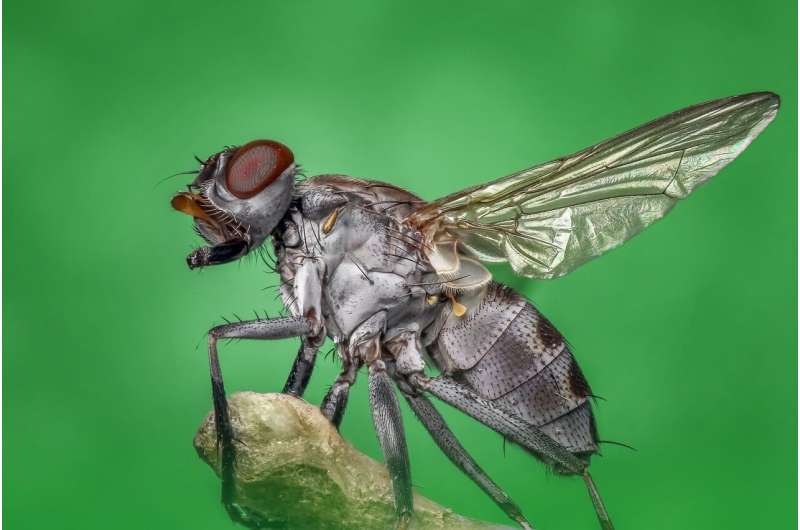Compelling evidence of the connection between AMR surgical-site infections and arthropods

Antimicrobial resistance (AMR), the resistance of micro-organisms to antibiotics, antivirals or antifungals, is a huge global problem. Left unchecked, AMR threatens to become one of the world’s biggest health problems, surpassing diabetes and cancer. As more bugs become drug resistant we will lose the ability to rely on antibiotics for routinely treatments—including for basic surgery, cancer treatments or cesareans.
AMR could render many of the current mainstay and last-resort antibiotics useless, resulting in many more deaths from previously treatable infections. In 2019, a UN report estimated that drug-resistant microbes could lead to ten million deaths per year, and cost the world $100trn, by 2050.
Today, Oxford academics at the Ineos Oxford Institute (IOI), in partnership with other UK colleagues and collaborators in Peshawar, northern Pakistan, have published an article in Nature Microbiology, that for the first time, provides compelling evidence of connections between AMR bacteria causing surgical-site infections and arthropods. Key findings include:
- Approx. 20% of the flies, cockroaches, spiders, moths, and ants were carrying carbapenem resistance—a drug reserved for life-threaten infections.
- And 70–80% were carrying extended spectrum cephalosporin resistance—enzymes that confer resistance to most beta-lactam antibiotics, including penicillins, cephalosporins, and the monobactam aztreonam.
- Currently there are approximately 18 million flies to every human, but conservative global warming projections estimate insect and fly population will double if temperatures increase by 1.5 degrees.
- By 2080 there could be approx. 50,000 trillion flies carrying carbapenem resistance and spreading AMR across the planet.
“Similar to our experience over the last eighteen months with the pandemic, a problem currently seen from afar will quickly come into focus much closer to home. The clinical burden of AMR is most felt in low-middle income countries, but the increase in global temperatures, due to climate change, will result in a significant increase in flies and many other insects and a subsequent increase in the global velocity of antibiotic resistance.” Prof. Tim Walsh, Oxford University.
The pressing issues of AMR are not isolated to the ward or clinic but are far broader and aligned with anthropological behavior, dealing with human and animal waste and even climate change. Resistance can spread within hospitals, communities, farms, and wastewater systems—and we already know that domestic and companion animals share AMR microorganisms with humans.
One option that would delay, but not solve our problem, is to repurpose previously developed drugs—that either did not work in humans or that did not pass rigorous safety regulations—and using these instead in animals. This might slow the rate at which bacteria evolve to evade our current antibiotics, buying time to develop new ones.
Rethinking hospitals prevention and infection control measures, particularly in lower- and middle-income countries, is also part of the answer. As is further research into understand the impact of arthropods on the dissemination of AMR and improving the basic healthcare infrastructure to mitigate the spread of AMR by arthropods.
“There is no silver bullet when it comes tackling the worldwide threat of AMR. The Ineos Oxford Institute for AMR Research is committed to finding non-human antibiotic therapies and feeds for animals, addressing the increase in AMR in human infections and raising awareness of this hidden threat to human health. But this is a global medical crisis that ultimately will only be resolved with a global response.” Prof. Tim Walsh, Oxford University.
The paper is titled “A role for arthropods as vectors of multidrugresistant Enterobacterales in surgical site infections from South Asia.”
Brekhna Hassan et al, A role for arthropods as vectors of multidrug-resistant Enterobacterales in surgical site infections from South Asia, Nature Microbiology (2021). DOI: 10.1038/s41564-021-00965-1
Citation:
Compelling evidence of the connection between AMR surgical-site infections and arthropods (2021, September 30)
retrieved 30 September 2021
from https://phys.org/news/2021-09-compelling-evidence-amr-surgical-site-infections.html
This document is subject to copyright. Apart from any fair dealing for the purpose of private study or research, no
part may be reproduced without the written permission. The content is provided for information purposes only.
For all the latest Science News Click Here
For the latest news and updates, follow us on Google News.

